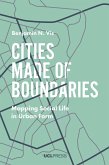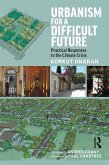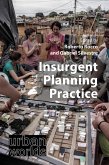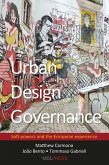Everyday streets are both the most used and most undervalued of cities' public spaces. They are places of social aggregation, bringing together those belonging to different classes, genders, ages, ethnicities and nationalities. They comprise not just the familiar outdoor spaces that we use to move and interact but also urban blocks, interiors, depths and hinterlands, which are integral to their nature and contribute to their vitality. Everyday streets are physically and socially shaped by the lives of the people and things that inhabit them through a reciprocal dance with multiple overlapping temporalities.
The primary focus of this book is an inclusive approach to understanding and designing everyday streets. It offers an analysis of many aspects of everyday streets from cities around the globe. From the regular rectilinear urban blocks of Montreal to the military-regulated narrow alleyways of Naples, and from the resilient market streets of London to the crammed commercial streets of Chennai, the streets in this book were all conceived with a certain level of control.
Everyday Streets is a palimpsest of methods, perspectives and recommendations that together provide a solid understanding of everyday streets, their degree of inclusiveness, and to what extent they could be more inclusive.
Praise for Everyday Streets
'For those looking for useful examples of highly relevant themes related to equality and inclusivity in streets, I recommend this book.'
Rooilijn
'Everyday Streets: Inclusive Approaches to Understanding and Designing Streets is a relevant read for a diverse audience of urban planners, scholars and students of sociology, urban studies, and urban planning. It enriches those fields, by emphasizing the importance of the street as a complex and multivaried analytical category. It contributes both vivid depictions of the many layers of street experience and practical planning tools, that underline the importance of diversity in terms of uses, spaces, and accessibility. Finally, it brings to the forefront the connection between urban design and the concept of the everyday and suggests innovative methods to capture and understand it, reminding the readers that the street is owned and created by and for everyday users.'
Built Environment
The primary focus of this book is an inclusive approach to understanding and designing everyday streets. It offers an analysis of many aspects of everyday streets from cities around the globe. From the regular rectilinear urban blocks of Montreal to the military-regulated narrow alleyways of Naples, and from the resilient market streets of London to the crammed commercial streets of Chennai, the streets in this book were all conceived with a certain level of control.
Everyday Streets is a palimpsest of methods, perspectives and recommendations that together provide a solid understanding of everyday streets, their degree of inclusiveness, and to what extent they could be more inclusive.
Praise for Everyday Streets
'For those looking for useful examples of highly relevant themes related to equality and inclusivity in streets, I recommend this book.'
Rooilijn
'Everyday Streets: Inclusive Approaches to Understanding and Designing Streets is a relevant read for a diverse audience of urban planners, scholars and students of sociology, urban studies, and urban planning. It enriches those fields, by emphasizing the importance of the street as a complex and multivaried analytical category. It contributes both vivid depictions of the many layers of street experience and practical planning tools, that underline the importance of diversity in terms of uses, spaces, and accessibility. Finally, it brings to the forefront the connection between urban design and the concept of the everyday and suggests innovative methods to capture and understand it, reminding the readers that the street is owned and created by and for everyday users.'
Built Environment
Dieser Download kann aus rechtlichen Gründen nur mit Rechnungsadresse in A, D ausgeliefert werden.









